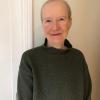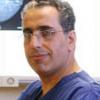The London Breast Clinic Consultant Breast Surgeon Mr Simon Marsh comments on the latest news on Breast Cancer Research Gap Warning. He says, "Yes, there is a lot to be learnt, but we should not be too pessimistic.The number of patients who now survive breast cancer will go on rising".
The review by scientists identified the following key areas that needed further work:
1. better understanding of genetic factors
2. pinpointing sustainable lifestyle changes
3. targeted breast screening to those who will most benefit
4. understanding how breast cancers grow and spread
5. understanding how cancer cells with different characteristics form within a tumour
6. tests to measure how well patients will respond to chemotherapy or radiotherapy
7. improving drug regimens
8. developing better imaging techniques
9. practical support
10. tissue donation and analysis
It is therefore interesting to get an expert view from one of the most respected and busy breast cancer consultants, to see what he makes of this and the implications for his patients.
Mr Simon Marsh reports as follows:
Scientists claim to have identified "ten critical gaps" in our knowledge about breast cancer. In fact, their "gaps" cover just about every aspect of the disease and show just how much we still have to learn about a disease that affects nearly 50,000 women a year in the UK.
Cause of Breast Cancer at Molecular Level Remains Unknown
Whilst we can identify factors that statistically affect the chances of developing the disease the actual cause, on a deep down molecular level, remains unknown. Even the discovery of the two so called breast "cancer genes" don't help that much. Scientists know that somehow they are involved with DNA repair but that doesn't help work out what actually happens to a cell to make it cancerous. And there are undoubtedly other genes involved that we know nothing about at the moment. The problem is that breast cancer has many causes, a combination of intrinsic causes (like the genes) and extrinsic ones ( the so called life style factors like drinking, smoking and obesity). It is likely that several things will have to happen to a cell in a particular order, over a period of time, for it to become a cancer.
Who should be Screened?
Imaging has certainly improved and techniques such as 3D mammograms and MRI scans can help detect smaller cancers earlier but there is still a question mark over who should be offered regular screening, particularly if breast cancer seems to run in the family.
Treatments have Advanced
Treatments have definitely advanced over the last decade and fewer women are now dying from breast cancer. There are now a small number of "targeted" treatments, such as Tamoxifen and the other endocrine treatments, as well as Herceptin and related drugs. Most standard chemotherapy remains a "best bet" and relies on the results of large trials of thousands of patients without being specific.
Tailoring Drugs to Individual Needs
The Oncotype DX test is a test carried out on a cancer specimen that can help to decide if chemotherapy may be useful but without recommending specific drugs. Studies are already underway, by companies such as Champions Oncology, to grow tumour samples in specially bred mice that will allow specific, effective, drugs to be found for each individual tumour. The genetics of that cancer can then be analysed to produce a "library" so that eventually simply analysing the genes of a cancer will be able to determine which drugs are useful in each case, making treatment truly individual. This is likely to be the greatest advance in the next 20 years and we are very pleased to be linked with this project here at The London Breast Clinic,108 Harley Street.
Living with, and surviving cancer, must not be forgotten and much has been made of improving the support network for breast cancer patients. Women may need financial as well as practical help and the provision of specialist breast cancer nurses makes this possible.
Yes, there is a lot to learnt but we should not be too pessimistic! The actual fundamental cause will, I suspect, elude us for decades. But the detection and treatment will go on improving and the number surviving their breast cancer will go on rising.
Consultant Breast Surgeon
The London Breast Clinic, 108 Harley Street








